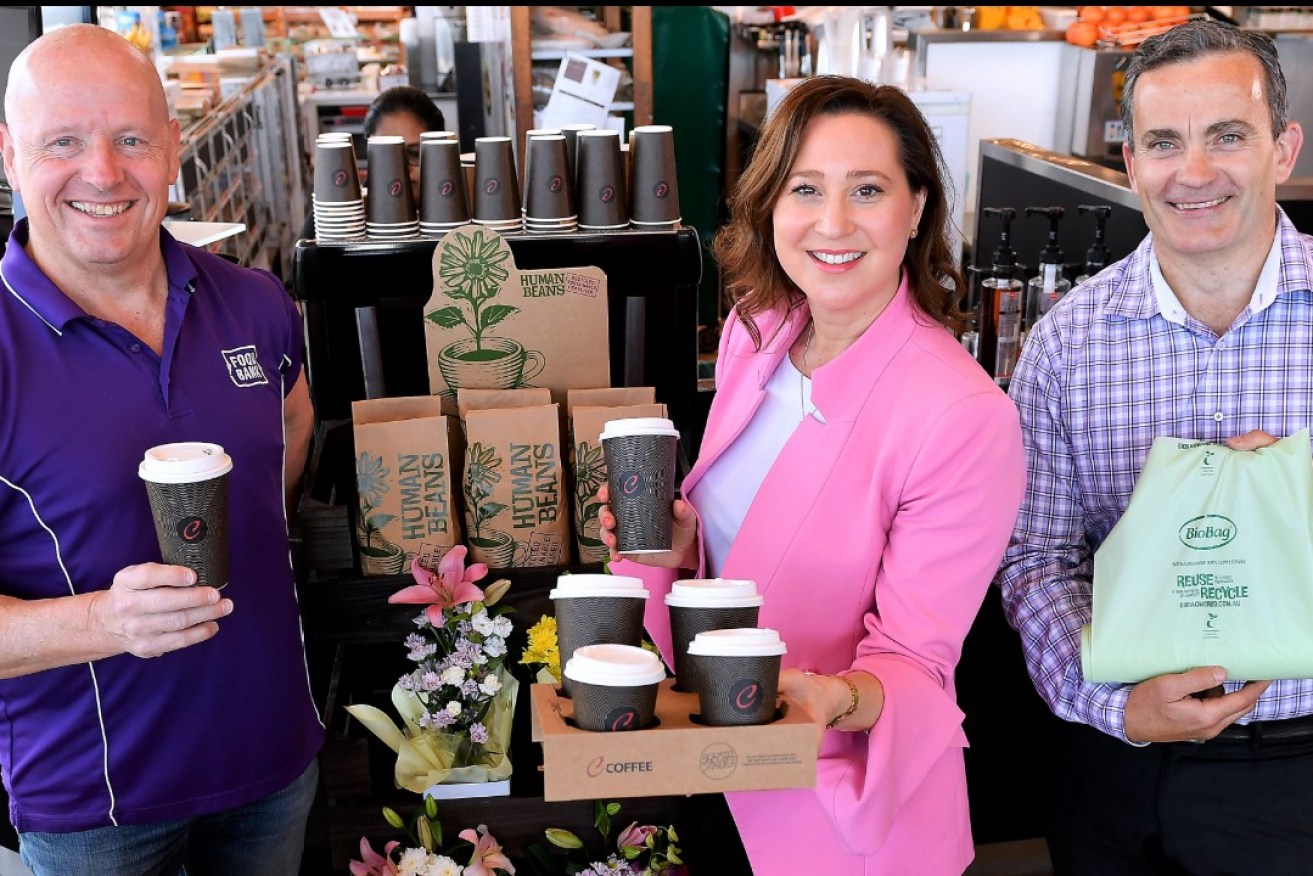Recycled beans to turn long blacks into healthy greens
Five South Australian businesses are collaborating in a bid to divert used coffee grinds away from landfill and turn them into fertiliser.


Foodbank SA CEO Greg Pattinson with On The Run's Joann Skene and BioBag Australia Director Scott Morton. Image: Mark Brake.
Compostable packaging company BioBag World Australia, SA service station chain On The Run (OTR), charity Foodbank SA, packaging company Detpak and biological fertiliser manufacturer Neutrog have joined forces for a trial to turn used coffee grounds into a fertiliser known as Human Beans.
Dubbed the Grounds For Good project, the initiative uses BioBags’ compostable coffee knock tube liners to collect coffee grounds from 11 OTR stores.
Foodbank SA collects the grinds and delivers them to Neutrog, which turns the coffee into an organic compost.
While the project is still in its trial phase, it is expected once the fertiliser is ready for sale it will be bagged by Detpak and returned to OTR for retail sale in 2021.
Part of the product proceeds from each Human Beans bag sold are due to go Foodbank SA to subsidise five meals for Foodbank recipients.
According to Neutrog’s website fertiliser consistency was key to developing compost for optimal crops.
Research and Development manager Uwe Stroeher said the company’s fertilisers were manufactured from a composted chicken manure base which provided a consistency and uniformity of material available from very few sources other than coffee.
“Used coffee grounds are a unique biological input, but unprocessed can negatively impact plant growth. What releases all of their potential is the process of composting the raw coffee grounds,” Uwe said.
Neutrog said while it had coffee grounds “on the radar for more than eight years” it had struggled to find a way to effectively collect the bulk of grounds required to produce a fertiliser suitable for home and large-scale sale.
BioBag World Australia director Scott Morton said the Adelaide-based manufacturing company had donated 1000 coffee tube liners for the trial, which had begun in October and was expected to finish on November 30.
The company’s coffee tube liners use BioBag’s compostable corn-stach based master-bi resin which it developed to replace traditional plastic polyethylene.
“BioBag is really excited about this project because it aligns perfectly with our goal of keeping organics out of landfill,” Morton said.
“It also supports Foodbank to help anyone in the local community experiencing food insecurity with food relief at the same time.”
Environmental not-for-profit Plant Ark estimated in 2018 Australians consumed six billion cups of coffee annually, with the waste created by the beverage contributing to landfill.
While OTR estimated 75 kilograms of used coffee grounds a day would be collected from each of its stores during the trial phase, with the potential to collect more than 200 tonnes of ground coffee from their 150 stores annually.
“We’ve truly created the circular economy by working with Foodbank, Neutrog and OTR to divert this valuable resource out of landfill and return it to the earth,” Morton said.
“It’s a really simple behaviour change. We’re not asking anyone to do anything remarkably different, we’re just capturing an organic resource and we’re turning it back into an organics resource.”




